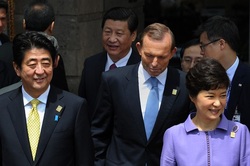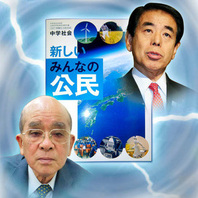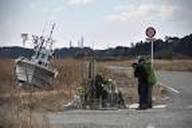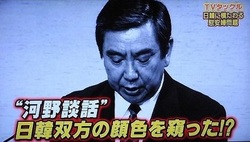 Source: wsj.com
Source: wsj.com While these events were underway, news organisations were reporting on Tuesday that the Abe government was currently considering the message to be included in a statement to mark the 70th anniversary of the end of WWII. While the government indicated in a response made to questions in the Diet that it would continue to hold the same degree of historical recognition as past Japanese cabinets, it also revealed that it would be focusing on a ‘more appropriate, forward-looking message’ (J). That seems to indicate that the Abe cabinet is considering a message that advocates placing historical events in the past and urging its neighbours to cooperate with Japan.
This may not produce the desired effect, if the events that occurred at The Hague summit are anything to go by. The summit featured a trilateral leaders’ dialogue between Abe, US President Obama, and South Korean President Park Guen-hye on the sidelines of the nuclear debate (J). The purpose of the meeting was to promote dialogue between all three leaders, particularly considering the fact that neither Abe nor Park had spoken directly to one another despite both coming to office more than a year ago, and the US needs South Korea and Japan to co-operate in order to deal with North Korea. As to whether the dialogue was cordial, that remains debatable, as the press conference following the meeting suggested (as can be seen here (video). Abe clearly wanted to use the occasion to develop some sort of rapport with Park, but that wasn’t going to happen. One can only imagine what President Obama was thinking. Overall, a very awkward situation.
Meanwhile in Australia the national focus turned from matters domestic to Australian PM Abbott’s up-coming visit to North Asia. High on the agenda for this trip is the expectation of the creation of an FTA (or EPA, if relying on Japanese sources) with Japan, with many in Australia seeing it as a natural development after the FTA with South Korea. Certainly PM Abbott intends to focus predominantly on things economic during his visit, as his domestic support depends on his ability to create business opportunities for Australian industries and allow the unemployment rate to drop.
The print media in Australia, however, has emphasised that North Asia is currently in a state of diplomatic tension, particularly with regard to the Senkaku Islands and the degree of hostility exhibited by China and South Korea towards the Abe government. PM Abbott has made no secret of his affinity for Japan, which (as every pundit will point out) is a natural part of his conservative background. In an interview with the Nikkei Asia Review, PM Abbott again reiterated his admiration for Japan as a democracy and trading partner, and, in a move that is not likely to endear him to Beijing, stated that a larger role for the SDF in the region was “very reasonable” ($).
Sam Roggeveen, in an opinion piece for the Lowy Interpreter blog, noted that Abbott had done well to steer clear in his speech to the Asia Society earlier in the week of any appearance of partisanship, however his rhetoric on the inevitability of liberalism in China might have rankled Beijing and added one further complication to his visit to China. The visit might already be complicated by Abbott’s open advocacy of Japan, preference for the US in security, and the criticisms of his government directed against China’s ADZ, although his foreign minister Julie Bishop was giving nothing away during an interview held on Thursday evening.
Not wanting to wade into any controversy, Abbott is likely to remain firmly fixed on trade negotiations and give little attention to anything else, including issues that have captured the attention of the Australian public in the past such as whaling or Tibet (or Yasukuni Shrine, although this is not regarded as an issue of concern in Australia). With Abbott still considered an ‘unknown’ to many leaders in the region, his pro US, pro Japan position will likely garner him support among advocates for the status quo, while those seeking a greater role for China might consider him an anachronism (especially after this week, and Abbott’s curious decision to re-introduce imperial honours). While Abbott will receive a positive welcome in Tokyo and Seoul, Beijing remains the enigma, an unknown in terms of its reception to Abbott as Abbott is to most Chinese citizens.
For China, Abbott does represent an opportunity to forge a new relationship with Australia, albeit in the knowledge that he will continue to prioritise relations with Japan. Australia is, in a sense, a US-Europe ‘lite’, a testing ground for how to approach Western democracies in order to better negotiate with them. As Australia has close ties to its cultural brethren in the northern hemisphere, it presents China with the opportunity to sound out Western thinking without having to directly ask either Washington or Brussels (Canada may also serve this role, as may New Zealand).



 RSS Feed
RSS Feed